Knowledge, Power, and Islam: Engaging with Modernity
How should Islam approach modernity, and what aspects of modernity are compatible with Islamic values? Such questions are highly relevant to contemporary concerns. It is essential for anyone reflecting on Islam in the context of modernity to understand the transformations that modernity has brought about. One must necessarily recognize how scientific discourses are entangled with structures of power and how hierarchies of authority shape and demarcate particular forms of knowledge.
When considering the epistemic crisis facing the Muslim world, it is insufficient to frame the matter solely in terms of political authority. More crucial is to understand the very nature of knowing-how knowledge is produced, validated, and situated within specific frameworks of power.
Salman Sayyid observes that there should be Islamic thoughts based on ontology. Modernity, he argues, is enabled by a configuration of knowledge that marginalizes “Muslimness” and relegates it to the periphery. The political weakness, economic instability, and Western fascination within Muslim societies are not only the result of a decline in knowledge, but they are also shaped by a specific configuration of knowledge itself.
Eurocentrism, Orientalist determinism, and positivist ideologies are foundational to the modern intellectual project. Therefore, Salman Sayyid argues that reclaiming “Muslimness” within modernity requires problematizing the prevailing epistemic dominance and advancing modes of expression that destabilize established power structures. The epistemic space of Islam within modernity can be meaningfully articulated only by engaging with ontological questions centered on “Muslimness”—such as “Who is the Muslim in modernity?” and “How is the Muslim defined?”
The concept of the Islamisation of Knowledge (IOK), which emerged in the second half of the twentieth century, has contributed significantly to various intellectual advancements in the Islamic world. Critical Muslim Studies (CMS), developed in the early twenty-first century, emphasizes the need to critically engage with the epistemological assumptions underlying the IOK project. While the Islamisation of Knowledge attributes the intellectual crisis of Muslims primarily to a decline in knowledge, Critical Muslim Studies argues that what must first be understood, especially when engaging with knowledge in modernity, is the particular ways in which knowledge is constructed and categorized.
Western epistemological frameworks have asserted dominance over all other systems of knowledge. It becomes imperative for any Muslim engaging intellectually within modernity to critically examine the power structures that have shaped this form of knowledge, to interrogate the epistemic regimes they have produced, and to consciously detach oneself from them.
Dr. Ovamir Anjum also argues that when confronting modernity through Islamic sources and methodologies, it is essential to recognize how Islamic epistemologies and concepts themselves have already been translated into particular frameworks or grammars in the contemporary context. Intellectual engagements from within the Islamic world must critically reflect the internal challenges faced by efforts to defend an ‘authoritative Islam’ within Western frameworks.
Such efforts seek direct compatibilities between Islamic sources and Western scientific epistemologies. The Qur’an is often approached merely as a tool to validate scientific realities, without engaging with its broader epistemic and existential capacities. These positivist approaches are driven by an obsession with proving that Islamic intellectual traditions are consistent with modern scientific paradigms.
European modernity formulates its understanding of time and space through a teleological framework. This idea views modernity as the pinnacle of development, and all others are positioned as either temporally distant subjects that should be excluded or made obsolete, or as things that must eventually reach this conclusion. Consequently, a misconception has emerged within Islamic intellectual engagements — the belief that the ideas of modernity are absolute and complete, and that meaningful self-expression is possible only through inclusion within its framework.
The central crisis facing Islamic intellectual engagements lies in the tendency to use Islamic sources merely as instruments to affirm the scientific rationality grounded in the teleological orientation of modernity, rather than developing methodologies that allow these sources to be understood within their own epistemic and historical contexts.
Anjum’s analysis of the renaming of the American Journal of Islamic Studies to the American Journal of Islam and Social Sciences points to a deeper need: the reconstruction of Islamic epistemology so that it can engage with the ontological and epistemological shifts brought by modernity—without severing its link to the rich intellectual heritage of Islam. This raises a critical question: How can Islam meaningfully address transformations in a world vastly different from the historical context in which its traditions first developed?
In the pre-modern era, scholars viewed social change mainly as an inherent, natural process. These transformations were seen through the lens of human actions as slow, evolutionary results influenced by natural trends, rather than as intentional breaks or structural reorganizations. In the pre-modern context, neither humanity nor nature was viewed as possessing absolute dominion. As a result, social realities were evaluated through the lens of divine intent, grounded in the authority of scriptural sources. However, with the emergence of modernity, such a mode of evaluating social reality has become largely irrelevant or marginalized.
It is crucial to understand the transformations that modernity has introduced across all domains of human life. Through its epistemic domination, the West succeeded in establishing its own intellectual tradition as superior to all other human and knowledge traditions, including those of the Islamic world.
Mahmood Mamdani, in his book Good Muslim, Bad Muslim, provides a detailed analysis of how the fall of Muslim Iberia paved the way for Western modernity to enact a distinct form of epistemicide - the systematic erasure of non-Western ways of knowing. Similarly, Laura Marks highlights how “whiteness” was embedded as a constitutive influence from the very inception of the modern state. She and other critical scholars demonstrate how power was used to reshape history, allied with Western interests. Here, power functioned as a distributor of a 'new truth', wherein the nation-state’s educational systems became mechanisms for producing national myths and, through them, transforming human beings into colonial subjects.
On the other hand, the transformations of modernity were brought - both directly and indirectly - by those in positions of authority. These were not simply organic or natural shifts. As Michel Foucault suggests, modernity must be understood within a practical domain that enables it to exercise sovereign control over the lives of its subjects-both to make life possible and to render it disposable. It is in this active context that the modern 'transformation' can genuinely be situated.
Islamic engagement with modernity has often been limited by its failure to address the ways in which modernity reshapes not only social structures but also human identity and moral agency. In the classical Islamic world, scholars often operated as independent centers of authority, engaging deeply with both theological and practical sciences. Their intellectual practice was grounded in the integrated domains of theology (kalam), politics (siyasa), and law (fiqh).
The Enlightenment’s epistemology divided body from mind and was accompanied by profound structural changes—the rise of the Westphalian nation-state, the Industrial Revolution, and the colonial project. These developments reshaped the human condition in ways that cannot be ignored. For Muslims, the challenge is to create intellectual responses that address these realities while remaining rooted in their own theological and epistemological heritage.
AUTHOR BIO
Muhammed Mishab K. P. is a final-year postgraduate student at Darul Huda Islamic University, specializing in Qur’anic and related sciences. With a background in Sociology and a strong interest in Arabic and Islamic thought, he writes on contemporary issues to connect Islamic tradition with modern life.
REFERENCES
- Anjum, O. (2012). Politics, Law, and Community in Islamic Thought: The Taymiyyan Moment. Cambridge University Press.
- Foucault, M. (1980). Power/Knowledge: Selected Interviews and Other Writings, 1972–1977. Pantheon Books.
- Marks, L. (2010). Enfoldment and Infinity: An Islamic Genealogy of New Media Art. MIT Press.
- Sayyid, S. (2014). Recalling the Caliphate: Decolonization and World Order. Hurst Publishers.
Disclaimer
The views expressed in this article are the author’s own and do not necessarily mirror Islamonweb’s editorial stance.

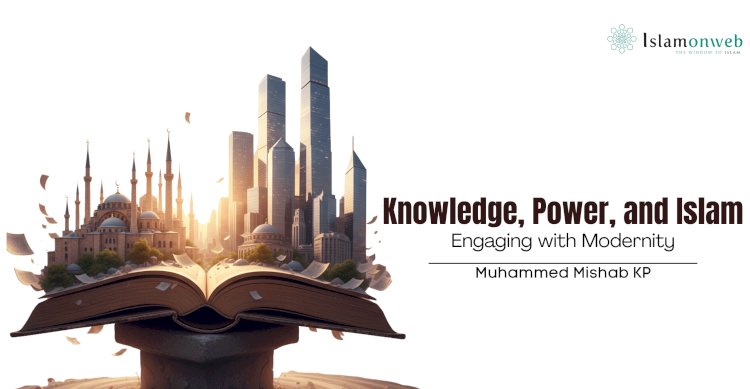


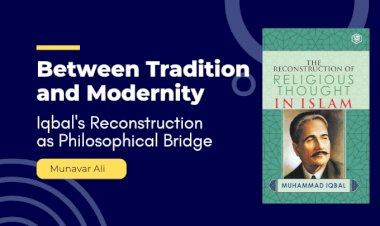
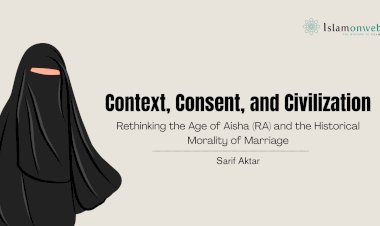
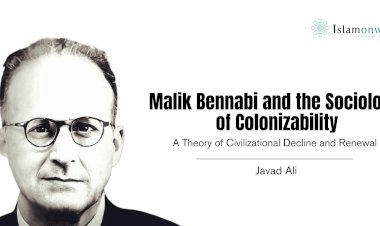
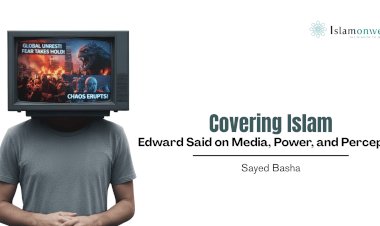
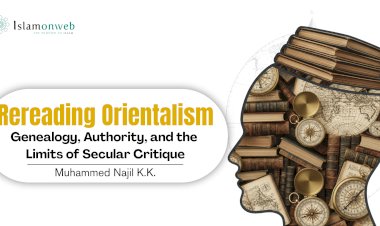
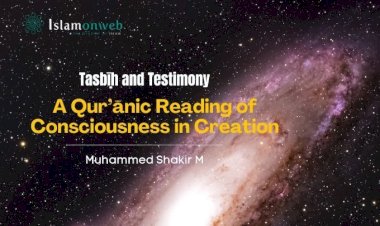













Leave A Comment